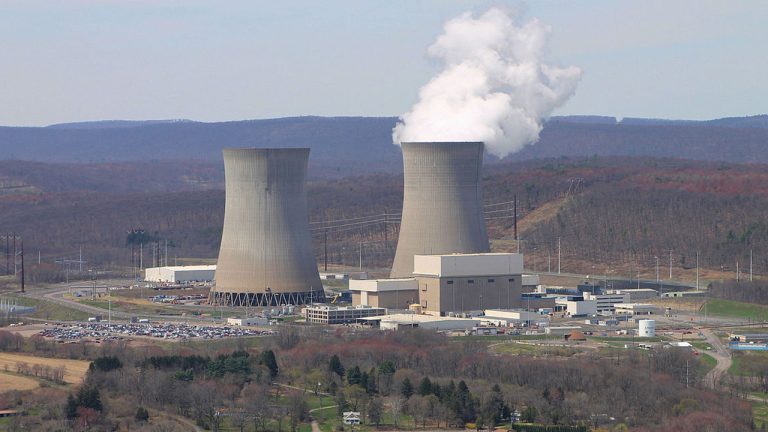 Cleanspark Inc. has unveiled plans to acquire seven bitcoin mining facilities in Knoxville, Tennessee. The $27.5 million deal is expected to boost the company’s current mining capacity by 5 exahash per second (EH/s) by 2024, representing a 22% increase in its operational hashrate. Cleanspark to Acquire 7 Bitcoin Mining Facilities in $27.5M Deal, Boosting Hashrate […]
Cleanspark Inc. has unveiled plans to acquire seven bitcoin mining facilities in Knoxville, Tennessee. The $27.5 million deal is expected to boost the company’s current mining capacity by 5 exahash per second (EH/s) by 2024, representing a 22% increase in its operational hashrate. Cleanspark to Acquire 7 Bitcoin Mining Facilities in $27.5M Deal, Boosting Hashrate […] A project to build two large-scale facilities for cryptocurrency mining is underway in the United Arab Emirates (UAE). The high-tech data centers will rely on a full immersion solution to cool the power-hungry miners as the desert climate renders air-cooled mining infeasible, participants said. Advanced Crypto Mining Facilities in Abu Dhabi to Defy Cooling Challenges […]
A project to build two large-scale facilities for cryptocurrency mining is underway in the United Arab Emirates (UAE). The high-tech data centers will rely on a full immersion solution to cool the power-hungry miners as the desert climate renders air-cooled mining infeasible, participants said. Advanced Crypto Mining Facilities in Abu Dhabi to Defy Cooling Challenges […]
With a new quarterly production record, Marathon Digital is now on track to meet its mid-year target of 23 exahashes.
Bitcoin (BTC) mining firm Marathon Digital has reported a quarterly record of 2,195 BTC mined over the first quarter of 2023, currently worth around $62 million.
Marathon reported in an April 3 update that the 2,195 mined BTC is a 74% increase from the first quarter of last year and a 41% increase from Q4 2022.
It comes on the back of the miner increasing its operational hash rate by 195% from Q1 2022.
Marathon also recorded a monthly record of 825 BTC mined in March — currently valued at around $23.3 million — and marked a 21% production increase from February.
$MARA's March Production Update is here:
— Marathon Digital Holdings (NASDAQ: MARA) (@MarathonDH) April 3, 2023
- Increased #Bitcoin Production 21% MoM
- Produced a Record 825 BTC in March ’23
- Produced a Record 2,195 BTC in Q1 ’23
- Increased Hash Rate 64% in Q1 ’23 (11.5 EH/s)
- Reported Unrestricted Cash and Cash Equiv. of $124.9M
- Increased… pic.twitter.com/Jc1ACI2kY2
In a statement, CEO Fred Thiel said Marathon made “notable progress” on executing its two primary initiatives for 2023 — to energize its previously purchased mining rigs to reach 23 exahashes by the end of the second quarter and to optimize performance.
The firm is now exactly on target, having increased its operational hash rate from 7.0 exahashes on Jan. 1 to 11.5 exahashes as of March 31.
Marathon’s management attributed the increase in efficiency to it bringing online 25,900 Bitcoin miners based in various facilities in North Dakota, bringing its fleet to 105,200 mining rigs as of April 1.
Marathon explained its operational improvements cleaned up part of its balance sheet by wiping out $50 billion in debt in addition to repaying its loan back to the now-failed Silvergate Bank:
“We reduced our debt by $50 million and increased our unrestricted Bitcoin holdings by 3,132 Bitcoin after we prepaid our term loan and terminated our credit facilities with Silvergate Bank.”
The firm finished the quarter with approximately $124.9 million in unrestricted cash and cash equivalents, and 11,466 BTC, which equates to over $450 million.
Marathon noted the figures have not been audited.

Related: Bitcoin ASIC miner prices hovering at lows not seen in years
Marathon expects operational efficiencies to continue having purchased a new batch of Antminer S19 XPs Bitcoin mining rigs that are said to be nearly 30% more efficient than the Antminer S19 Pro.
Once those miners are installed approximately 66% of Marathon’s hash rate will come from the S19 XPs, it said.
The design of S19 XPs has, however, been criticized by fellow Bitcoin mining firm Compass Mining.
In a March report the firm identified “three flaws” of the new S19s which may result in the mining rig overheating, or in some cases, shutting down completely.
Magazine: Hodler’s Digest: FTX EU opens withdrawal, Elon Musk calls for AI halt, and Binance news
 Terawulf, a bitcoin mining operation, has announced that it has energized the first nuclear-powered bitcoin mining facility in the United States at the company’s Nautilus Facility in Pennsylvania. According to the company, approximately 1 exahash per second (EH/s) or close to 8,000 application-specific integrated circuit (ASIC) bitcoin miners are now online, and another 8,000 mining […]
Terawulf, a bitcoin mining operation, has announced that it has energized the first nuclear-powered bitcoin mining facility in the United States at the company’s Nautilus Facility in Pennsylvania. According to the company, approximately 1 exahash per second (EH/s) or close to 8,000 application-specific integrated circuit (ASIC) bitcoin miners are now online, and another 8,000 mining […] Bitcoin mining operation Cleanspark has acquired 20,000 brand-new Bitmain mining rigs for $43.6 million, the company reported. Once installed, Cleanspark expects to increase its capacity by 37% by adding roughly 2.44 exahash per second (EH/s) to the firm’s fleet. Cleanspark CEO Says Proprietary Mining Model Gives Company Greater Control and Efficiency Cleanspark, the publicly listed […]
Bitcoin mining operation Cleanspark has acquired 20,000 brand-new Bitmain mining rigs for $43.6 million, the company reported. Once installed, Cleanspark expects to increase its capacity by 37% by adding roughly 2.44 exahash per second (EH/s) to the firm’s fleet. Cleanspark CEO Says Proprietary Mining Model Gives Company Greater Control and Efficiency Cleanspark, the publicly listed […]
The Kentucky government is investigating whether the proposed discounted electricity for crypto miners will raise electricity costs for Kentucky residents.
The Kentucky Public Service Commission (PSC) has reportedly opened a formal investigation into two proposed contracts that would offer discounted electricity prices to new crypto-mining operations.
According to a Dec. 5 statement from environmental law group Earthjustice, the government department would be looking to determine whether subsidizing crypto mining operations will raise electricity costs for Kentucky residents.
The two mining contracts under investigation include one between Kentucky Power and Ebon International LLC, which runs a 250-megawatt mining facility in Louisa, as well as mining company Bitki-KY, which operates a 13-megawatt facility in Waverly, Kentucky.
The contract proposes to give discounted electricity rates to the Ebon Facility, while the Bitki-KY has already received a $250,000 tax credit from the state of Kentucky after the passing of a Kentucky tax break bill for local crypto miners.
Earthjustice argued in its statement said that crypto mining is “extremely and exponentially energy-intensive by design” and that the discounted rates for the facilities “could result in higher electric bills for everyday Kentuckians.”
A senior attorney for the environmental group, Thomas Cmar, said it was “looking forward to the upcoming hearings and discovery process so Kentuckians can know exactly what they would be paying for by subsidizing these facilities, ” adding:
"I'm hopeful that the Commission will see these cryptocurrency mining companies' empty promises that they will benefit local communities [...] and give more scrutiny to contracts like these in the future.”
“Cryptocurrency mining is a largely unregulated and highly energy intensive industry that could cost everyday Kentuckians big,” he added.
The group also claimed that crypto mining companies rarely create employment opportunities because of the highly automated nature of mining operations.
Lane Boldman, the executive director of environmental advocacy group Kentucky Conservation Committee, added that the burden of costs associated with building new crypto mining facilities “often lands on everyday people” as “everybody else's electric bills go up to cover the costs.”
Related: Eager to work: Bitcoin switch to proof-of-stake remains unlikely
Kentucky has become a hotspot for crypto mining companies, which is reported to now contribute 20% of the country’s computer power for proof-of-work mining activities, which ranks second among all U.S. states after New York, according to an Oct. 9 CNBC report.
But while many environmental groups want Bitcoin (BTC) and other proof-of-work blockchains to transition to proof-of-stake due to energy concerns, the Bitcoin Mining Council recently published a report suggesting that Bitcoin could soon become a “zero-emission network” by “combusting stranded methane gas to mine BTC that would have otherwise been emitted into the atmosphere.”
Cointelegraph reached out to the PSC for confirmation and details behind the investigation but has not received an immediate response.
Earthjustice noted that it collaborated with the Kentucky Resources Council to file comments on behalf of a broad coalition of Kentucky-based environmental groups and requested for the PSC to look into the matter.
 While bitcoin is down more than 72% from the crypto asset’s all-time high, bitcoin mining operations are expanding at a rapid pace during the downturn. On Tuesday, the bitcoin miner Cleanspark said its hashrate has surpassed 4 exahash per second (EH/s), and the Texas mining company Rhodium revealed it raised $11.9 million, according to a […]
While bitcoin is down more than 72% from the crypto asset’s all-time high, bitcoin mining operations are expanding at a rapid pace during the downturn. On Tuesday, the bitcoin miner Cleanspark said its hashrate has surpassed 4 exahash per second (EH/s), and the Texas mining company Rhodium revealed it raised $11.9 million, according to a […] Crypto industry experts have formed a working group to draft a standard for energy-efficient and profitable cryptocurrency mining in Russia. The rules will aim to help developers and data center operators offer investors increased hardware uptime. Russia Prepares to Improve Efficiency of Mining Facilities in 2023 A group of crypto specialists have teamed up to […]
Crypto industry experts have formed a working group to draft a standard for energy-efficient and profitable cryptocurrency mining in Russia. The rules will aim to help developers and data center operators offer investors increased hardware uptime. Russia Prepares to Improve Efficiency of Mining Facilities in 2023 A group of crypto specialists have teamed up to […] Authorities in Kazakhstan have gone after illegal crypto mining operations amid ongoing issues with electricity supply. Working together with law enforcement, the country’s energy ministry announced the closure of over a dozen facilities minting digital currencies. Government Shuts Down Unauthorized Crypto Mining Operations Across Kazakhstan Local departments of the Committee for Atomic and Energy Supervision […]
Authorities in Kazakhstan have gone after illegal crypto mining operations amid ongoing issues with electricity supply. Working together with law enforcement, the country’s energy ministry announced the closure of over a dozen facilities minting digital currencies. Government Shuts Down Unauthorized Crypto Mining Operations Across Kazakhstan Local departments of the Committee for Atomic and Energy Supervision […] Police in Kosovo seized another batch of over 200 mining devices as part of raids that started on Thursday. The offensive against underground crypto farms was launched after authorities in Pristina banned the power-hungry minting of digital currencies amid an energy crisis in the country. Authorities in Kosovo Confiscate Mining Hardware in Serb Majority North […]
Police in Kosovo seized another batch of over 200 mining devices as part of raids that started on Thursday. The offensive against underground crypto farms was launched after authorities in Pristina banned the power-hungry minting of digital currencies amid an energy crisis in the country. Authorities in Kosovo Confiscate Mining Hardware in Serb Majority North […]